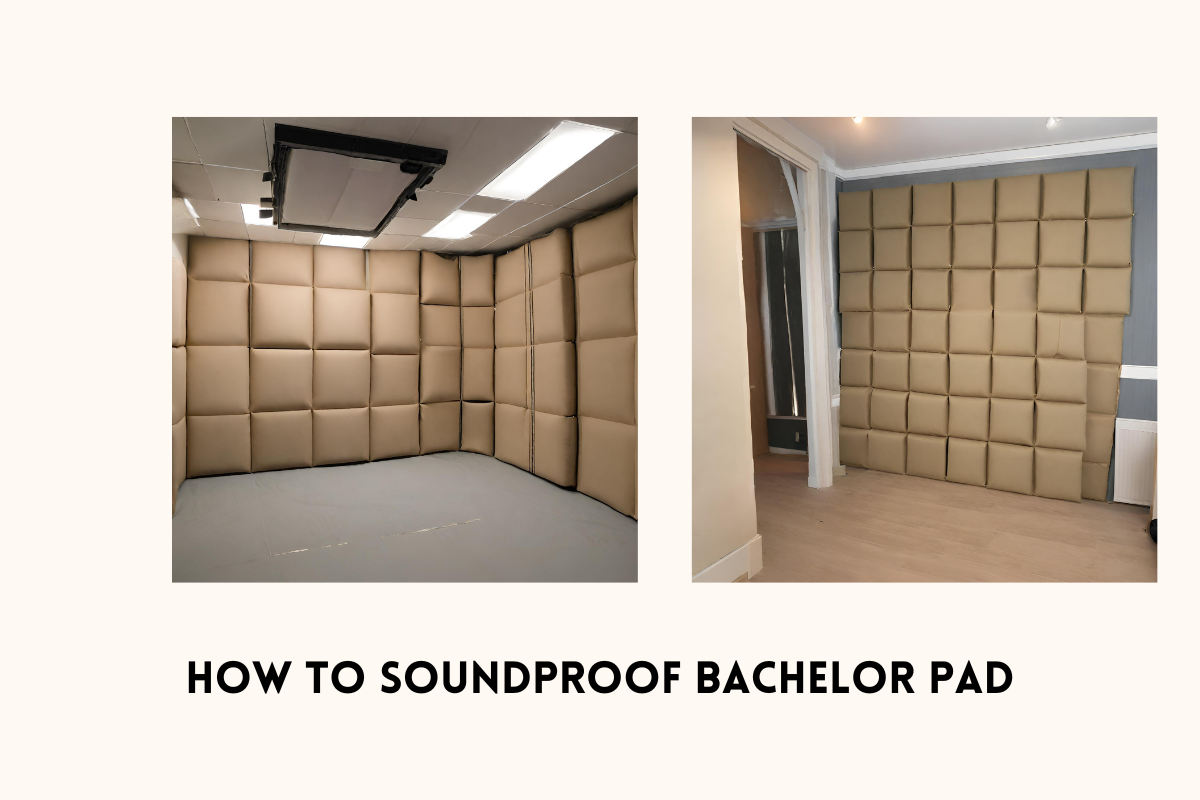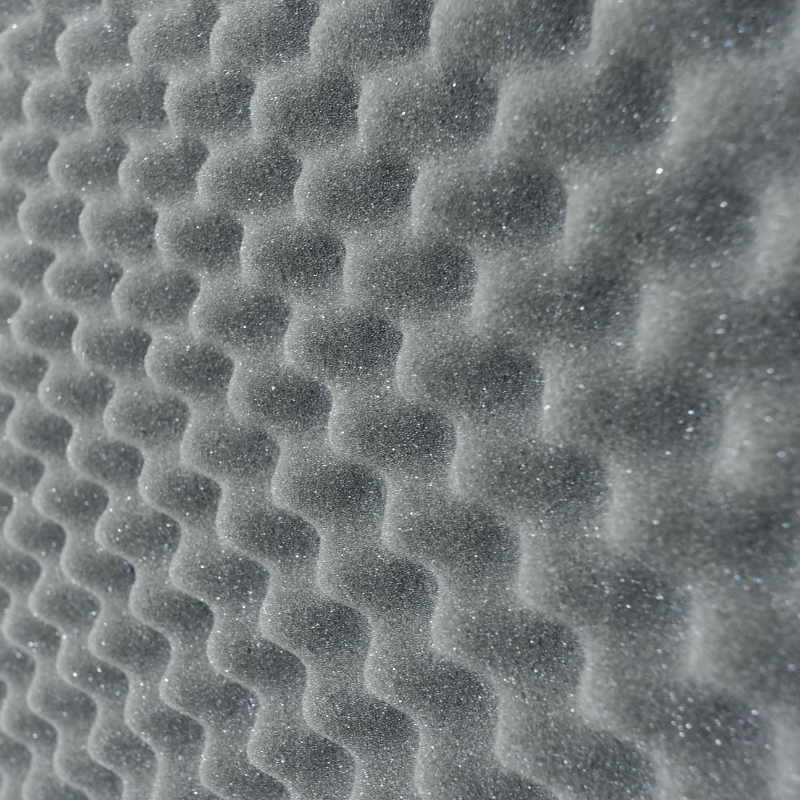How To Soundproof Bachelor Pad

Is noise a constant issue in your bachelor pad? A well-soundproofed space offers peace and privacy.
Soundproofing enhances living quality. Exterior noise seeps through walls, floors, and ceilings. Interior sounds transmit room-to-room. Proper insulation blocks unwanted disturbances. Simple DIY methods exist for budget-friendly soundproofing.

1. Seal Gaps and Cracks
To block noise, first look for small open spaces in your home. Tiny gaps let sound travel easily between rooms. Acoustic caulk fills these spaces, stopping noise. This method is simple and effective for a quieter room.
You mostly find these gaps around doors, windows, and where walls meet floors or ceilings. Applying acoustic caulk is straightforward. Cover all gaps well for the best sound block. After drying, this caulk forms a solid noise barrier.
2. Install Mass-Loaded Vinyl
Mass-loaded vinyl (MLV) changes the game in noise control. It’s heavy yet flexible, perfect for covering walls or ceilings to block sound. MLV is especially useful in areas used for loud music or movies.
Putting MLV in place seems complex but isn’t. Cut it to size, then attach it with nails, screws, or glue. Aim to cover noise-prone areas fully.
Its density makes MLV great at halting sound. This means less outside noise comes in, and less noise from your space goes out. It supports quiet enjoyment of your activities.
3. Use Acoustic Panels
Acoustic panels not only quiet your room but also improve sound quality inside. There are two types: foam and fabric-wrapped fiberglass. Both catch sound waves to reduce echoes.
Place these panels on walls or ceilings in echo-prone spots. They’re ideal for enjoying music, movies, or recording. Reducing echoes makes room sounds clearer and more enjoyable.
Setting up acoustic panels is easy. Arrange them nicely to cover areas where sound bounces most. This action quiets your room and enhances sound quality.
4. Upgrade Windows
Old or single-pane windows let in much noise. Switching to double or triple-pane windows adds a barrier against sound. These windows have layers of glass with air or gas between, blocking noise.
Besides noise reduction, these windows also keep your place warm in winter and cool in summer. They’re a smart choice for both comfort and quiet.
Installing new windows is a significant task but valuable for cutting noise and saving energy. If new windows aren’t an option now, heavy curtains can also block some noise.
5. Insulate Interior Walls
Insulating inside walls helps control temperature and reduces noise. Using materials like fiberglass batts or spray foam keeps sound from moving through walls. This is great for making sure noise from conversations, music, or movies doesn’t bother others in different rooms.
Choose the right insulation for your needs. Fiberglass is easy to handle and fits between wall studs. Spray foam grows to fill spaces, creating a solid sound barrier. Both types need tight packing to block sound well.
Adding insulation usually means opening walls, a big job. Yet, if you’re updating or building, it’s the right time for soundproofing. This effort significantly lowers how much noise moves around your home.
6. Install a Solid Core Door
Noise often slips through doors, especially hollow ones. Switching to solid core doors reduces sound passing through. These doors are heavier and block sound much better.
Picking a solid core door is easy; choose ones meant to lessen sound. Setting up the door may require some DIY skills, but it’s worth it for a quieter room.
Check the door frame and seals too. Make sure no gaps let sound in. Adding weather stripping or a door sweep boosts your door’s ability to stop noise.
7. Lay Down Rugs or Carpet
Hard floors reflect sound, making rooms noisier. Rugs and carpets, however, soak up sound, making spaces quieter. They also add warmth and style.
You don’t need full carpeting; even a few rugs can help. Thicker rugs absorb more sound. Adding a rug pad underneath increases soundproofing.
This method is easy and flexible. You can switch out rugs to fit your style while still reducing noise. It’s a practical win-win solution.
8. Hang Sound-Absorbing Curtains
Thick curtains block more than light; they also reduce noise. They’re useful against noise from busy streets or neighbors. These curtains use dense materials to catch and stop sound waves.
Putting up these curtains is as simple as hanging any others. For full soundproofing, ensure they cover the window completely and drape well on the sides.
Such curtains can cut down a lot of incoming noise. They also add elegance and help with window insulation, which can save on heating and cooling costs.
9. Consider Soundproofing Materials
For top-level noise reduction, specialized materials like mass-loaded vinyl, acoustic caulk, and soundproof drywall offer the best control. They’re made to block, soak up, or dampen sound effectively.
Mass-loaded vinyl goes on walls, floors, and ceilings to stop airborne noise. Acoustic caulk fills in gaps and cracks to prevent sound leaks. Soundproof drywall, thicker and denser than regular, adds another layer of insulation against noise.
These materials may cost more but are worth considering for serious soundproofing. They work well with other methods for even better noise control.
1. What’s the first step in soundproofing a bachelor pad?
Start by sealing any gaps and cracks with acoustic caulk. These small openings are common noise entry points and sealing them provides a solid foundation for further soundproofing measures.
2. Can mass-loaded vinyl really make a difference in soundproofing?
Yes, mass-loaded vinyl (MLV) is highly effective at blocking airborne sound. It’s a dense, flexible material ideal for walls and ceilings, especially in areas where you play loud music or movies.
3. Are acoustic panels necessary for soundproofing?
While not always necessary, acoustic panels are beneficial for absorbing sound, reducing echoes, and enhancing the audio quality within a room. They’re particularly useful in entertainment spaces or recording areas.
4. How can windows be soundproofed without replacement?
If replacing windows isn’t an option, consider using heavy, sound-absorbing curtains or installing window inserts. These can significantly reduce external noise without the need for major renovations.
5. What’s a simple, budget-friendly way to reduce noise in a bachelor pad?
Laying down rugs or carpets can absorb sound and is an easy, cost-effective method. Additionally, using heavy curtains and sealing gaps are affordable steps to minimize noise intrusion.
